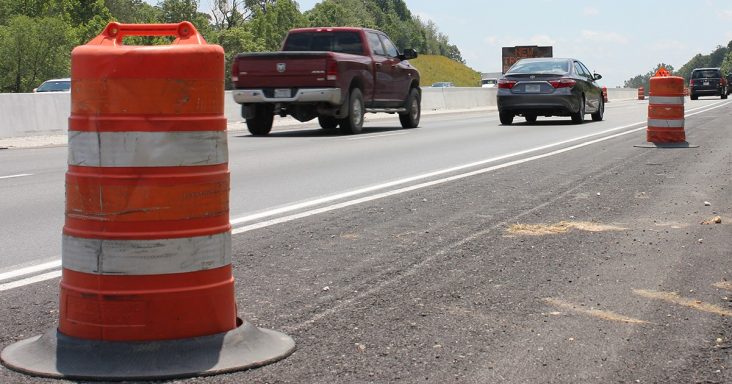Slowing U.S. economy, home prices biggest threats to Northwest Arkansas growth
by May 16, 2019 4:22 pm 2,094 views

A slowing U.S. economy, ongoing trade wars and tariff impacts are the biggest threats to growth in Northwest Arkansas, according to Mervin Jebaraj, director of the Center for Business & Economic Research at the University of Arkansas.
Jebaraj spoke Thursday (May 16) at the Quarterly Business Analysis luncheon in Fayetteville. In his analysis on the U.S. economy, Jebaraj pegs the chance for a recession at roughly 20% this year, without factoring in the latest round of tariffs he says are a wildcard in the economy.
He said U.S. households paid an extra $300 from the 10% tariffs on Chinese imports enacted eight months ago. With tariffs raised to 25% last week, he said the average impact on households will rise to $800 annually. This does not factor in the rising cost of automobiles as tariffs on component parts – especially aluminum and steel – continue.
Jebaraj said the manufacturing sector is feeling a moderate impact from the tariffs and trade tensions which is reflected in their somewhat negative sentiment in recent months. He said many companies bought up additional inventory ahead of the tariffs but have been unable to sell as many finished products because of uncertainty in export markets related to the trade troubles. Small businesses have also been less optimistic and slowed hiring and investment in early 2019 compared to prior years.
A bright spot in the economy are consumers who are happy, Jebaraj said. But interestingly, he said personal consumption expenditures are not growing despite low unemployment and higher wages.
“With wages rising above the 1.3% inflation rate, we should see consumer spending increases and we are not,” he added.
He said consumer debt is rising, predominantly auto loans. Interest rates remain historically low and there is little threat of any Fed raises this year. Jebaraj said student loan delinquencies are a growing problem as are subprime auto loans which are a concern for the overall economy.
Jebaraj said the biggest threat to the national economy remains the trade wars and tariffs, which could have a long term impact should other countries not trust the U.S. enough to negotiate long term deals.
“Americans are already eating about all the food they can. Farmers and food processors need the export markets to be open and accessible to fuel future growth,” he said. “I know the Trump Administration is talking about a financial package to help farmers sitting on stocks they can’t export, but what really helps them is having access to duty-free export markets.”
NWA HOME PRICES
Jebaraj said Northwest Arkansas is home to a growing retail base, and building trails and breweries add quality of life benefits, but the growth could be choked by not having enough flushable toilets.
He said lack of sewage capacity is the big topic of conversation in city council rooms. He said lot development is slow in Benton and Washington counties because of the lack of infrastructure where there is the most buildable land. Jebaraj said hilly areas require pump stations for sewage and drive up the building costs.
Home prices in the two counties continue to rise because of higher land prices and increased costs on some construction materials due to tariffs. Jebaraj said Benton County average home prices are $244,000, up 33% over the past five years. At $228,000 in Washington County, average home prices are up 23% over five years.
He said at these prices the affordability index is 2% higher than normal in each county. Washington County has plans to add between 400 and 500 lots this year, while Benton County will add 500 to 600 lots for single-family homes. Jebaraj told Talk Business & Politics the second biggest threat to local growth is rising home prices that will make the region less competitive in attracting talent to fill jobs.
CANNABIS, BOOMERS
Jebaraj said the rate of Baby Boomers retiring will likely have a considerable impact on U.S. economic growth for several years. This will trickle down to the region.
“When all the Baby Boomers retire and most of Gen Z has yet to enter the workforce, 40% of the economy will be sitting on the sideline. Historically the only other time this has been an issue was in the 1960s and the impact to the economy was 20%. The Baby Boomers and the Millennial generation are about the same size. But Millennials are not having enough kids to fill their shoes someday. This problem could persist for several generations,” Jebaraj said.
He was asked about the cannabis impact on the state. Jebaraj said the state is behind, but this industry should provide a short term boost to the state’s economy. He said it’s a cash industry and there are good jobs associated with moving and storing the product and cash.
